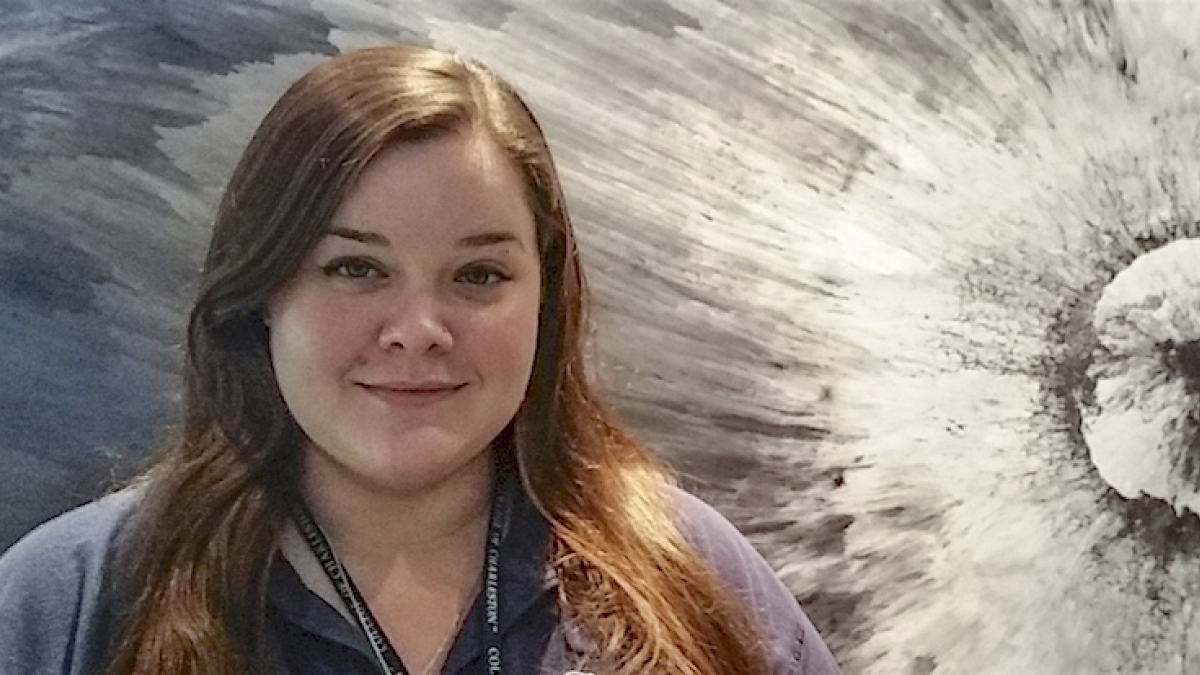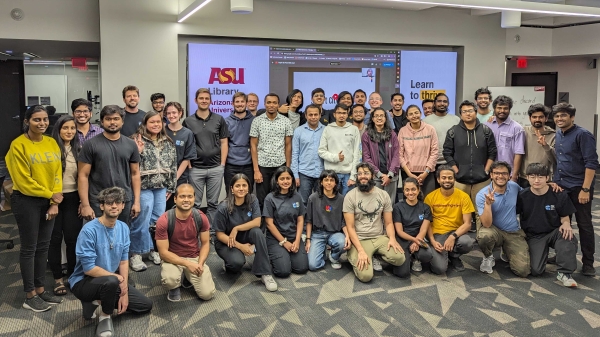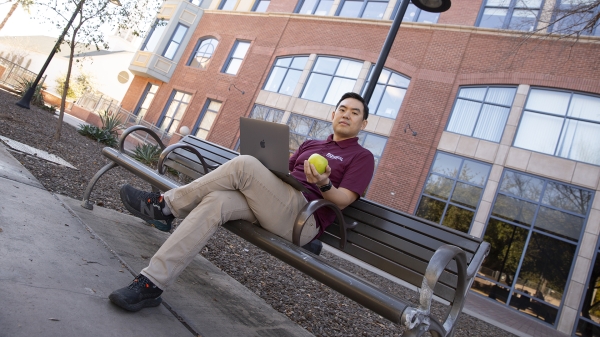Learning to be a scientist by figuring it out along the way

During her time at ASU, Heather Meyer joined the NASA’s Lunar Reconnaissance Orbiter Camera (LROC) Team, led by Mark Robinson of the School of Earth and Space Exploration.
Editor’s note: This is part of a series of profiles for spring 2018 commencement.
This May, Heather Meyer will be graduating from Arizona State University with her PhD in geological sciences from the School of Earth and Space Exploration. Originally from Charleston, South Carolina, Meyer had the opportunity as a kid to see a space shuttle launch from Kennedy Space Center, sparking her interest in space.
Then, as an undergraduate at the College of Charleston, she discovered planetary geology, which offered the perfect combination of her interests in both geology and space exploration, and so her path was set.
For graduate school, Meyer chose ASU and joined the NASA’s Lunar Reconnaissance Orbiter Camera (LROC) Team, led by Mark Robinson of the School of Earth and Space Exploration.
“ASU provides unparalleled opportunities to get involved in planetary missions to many solar system bodies,” says Meyer.
Meyer is now a planetary scientist at the Lunar and Planetary Institute in Houston. Her most recent published research includes a new moon map featured in Science News, using LROC data, showing where debris from giant impacts fell on the moon’s surface.
She answered questions about her time at ASU:
Question: What’s something you learned while at ASU — in the classroom or otherwise — that surprised you, that changed your perspective?
Answer: I used to wonder how some people became such successful scientists and where they learned everything, but the reality is that no one is born a successful scientist. We are all just figuring it out as we go along by applying scientific reasoning. That helped change my way of thinking about becoming a scientist (you don't need to know it all beforehand) and gave me hope that I can learn to be a good scientist too.
Q: What’s the best piece of advice you’d give to those still in school?
A: Work with your adviser to set realistic goals and reasonable achievements. Grad school in particular gives you very few major benchmarks, so you need to formulate some achievements on your own to remind yourself how much you are actually accomplishing along the way. And don't compare your progress with anyone else! That won't help anyone.
Q: What was your favorite spot on campus, whether for studying, meeting friends or just thinking about life?
A: I spent a lot of time at the MU Starbucks. Late nights, early mornings and afternoon pick-me-ups all required coffee. Conveniently, all of my friends relied on coffee too, so we often went together to work or chat.
Q: What are your plans after graduation?
A: I will spend the next two years in Houston working as a postdoctoral researcher at the Lunar and Planetary Institute doing primarily lunar research. Beyond that, who knows? There are some wonderful opportunities coming up in planetary science, and I hope to remain involved with active planetary missions and research.
Q: If someone gave you $40 million to solve one problem on our planet, what would you tackle?
A: Only $40 million for a global problem? I'd probably put it toward education and sustainable living for impoverished communities to aid in the fight to eliminate poverty.
More Science and technology

SpaceHACK highlights student solutions to environmental challenges, digital divide
By Adrianna Nine About 250 students from around the world convened online and at Arizona State University on March 22 for the…

New AI for a new era of discovery
As the legend goes, in 1665, Sir Isaac Newton sat in his garden at Woolsthorpe Manor in England and looked on as a lone apple…

ASU receives 3 awards for research critical to national security
Three researchers in the Ira A. Fulton Schools of Engineering at Arizona State University have received grant awards under the …